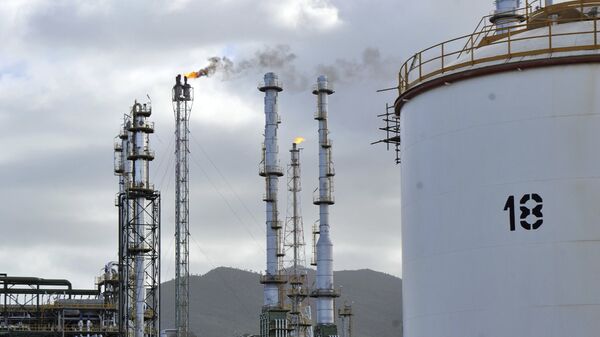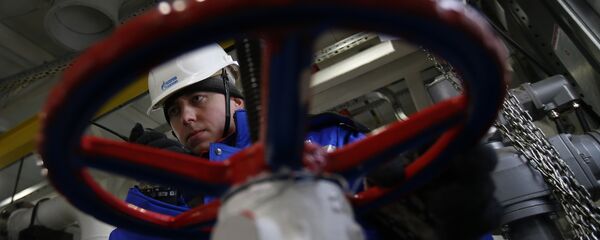"The committee cannot impose [production quotas] but the very fact that its actions up till now have led to significant results. In particular, with regard to significant reductions in production of 24 countries, more than 350 million barrels. Reduction in the inventories — between January and June 90 million barrels. More importantly, prices are much higher than last year. There is some credibility over actions of this committee," Guitouni said the day after the JMMC gathered in St. Petersburg to review the overall compliance with oil cuts six months after the agreement came into effect.
The JMMC was created in order to control the implementation of the deal. It includes ministers of three OPEC member states — Venezuela, Kuwait and Algeria — and two countries that not part of the cartel, namely Russia and Oman. The JMMC meets every two months.
The minister recalled the significant rise in the OPEC crude basket as an example of the successful work of JMMC members.
"If you take the OPEC basket and you compare the average price of the first semester with the first semester of last year, it is more than $13 per barrel," he said.
The JMMC and OPEC and other parties to the oil output curtailment agreement see no problem with Ecuador's lack of compliance with production cuts as the deal still holds overall, Mustapha Guitouni added.
"Of course, it was a bit of news about Ecuador, but then the Ecuadorian government has reacted and it is clear that Ecuador is still within the Declaration of Cooperation and one of the 24 countries [implementing oil production cuts], so there is absolutely no problem with Ecuador," Guitouni said the day after the JMMC gathered in St. Petersburg to review the overall compliance with oil cuts six months after the agreement came into effect.
"What is important to underline is that the implementation of the Declaration of Cooperation is really excellent and satisfactory. The level of conformity is at 98 percent. It's a historic ally very high figure. Of course, there may be some month-to-month adjustments by some countries, but what is most important is that implementation is really excellent," Guitouni said.
In 2016, OPEC reached an agreement in the Austrian capital of Vienna to reduce daily oil production during the first half of 2017 in an effort to boost global oil prices. The agreement was also supported by 11 non-OPEC states, including Russia that pledged to cut production by 300,000 barrels daily. In late May, the parties to the agreement decided to extend the accord until April 2018.
Brent crude has been fluctuating around $50 per barrel throughout 2017 after rebounding from under $30 per barrel seen in early 2016 amid an oversupply-driven market glut.




